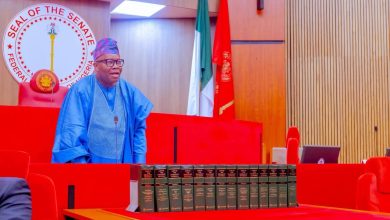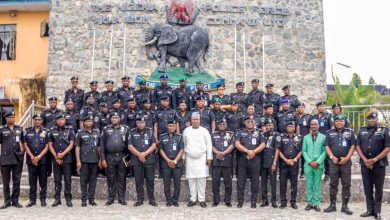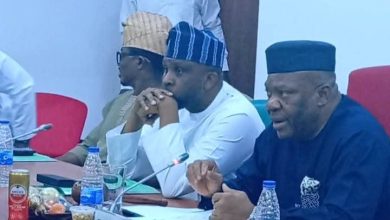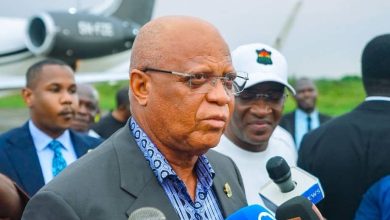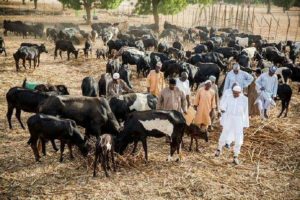
On Tuesday, September 11, 2019, the Muhammadu Buhari-led Federal Government launched a scheme christened- National Livestock Transformation Plan (NLTP).
The inauguration came after several attempts have been initiated by the administration towards introducing cattle ranching across the country and later Rural Grazing Area (RUGA) settlements. These attempts have been vehemently opposed by many sections of the country.
Characteristic of the administration’s affection for cattle raring, two months after announcing the suspension of the controversial RUGA Project, the Federal government plunged into the National Livestock Transformation Plan, NLTP.
The launch which took place at the Gongoshi Grazing Reserve in Mayo-Belwa Local Government Area of Adamawa State witnessed the Vice President, Professor Yemi Osinbajo who represented the President, inaugurate the Plan. What really does this Plan hold?
Insight into NLTP
The Vice-president who inaugurated the plan says the NLTP is designed to run from 2019-2028 as part of government’s efforts in collaboration with States under the National Economic Council (NEC). He revealed that the plan is to be implemented in seven pilot States of Adamawa, Benue, Kaduna, Plateau, Nasarawa, Taraba and Zamfara. The National Executive Council had announced that N100 billion naira is budgeted for the project.
According to the vice president, the plan will be implemented as a collaboration project between the Federal and State governments, farmers, pastoralists and private investors.
He notes “In this plan, the State Government or private investors provide the land, the federal government does not and will not take any land from a State or local government.
“Any participating State will provide the land and its own contribution to the project. The federal government merely supports.” According to the policy document of the Plan, the Federal Government is to contribute 80 per cent while State Government takes care of 20 per cent inputs towards the plan. Yet, since livestock farming is broad, what are the specific livestock this project hope to invest upon?
Osinbajo reveals ” it is a plan that hopes to birth tailor-made ranches where cattle are bred, and meat and dairy products are produced using modern livestock breeding and dairy methods.
“This solves the problem of cattle grazing into and destroying farmlands. It ensures a practical response to the pressures on water and pasture by forces of climate change.”
He notes that the plan is designed to provide modern meat and dairy industry and in some cases integrated crop farming.
According to Osinbajo, the unique feature of the plan is that any participating State will determine its own model.
“I wish to emphasise that this is not RUGA. Because the idea of RUGA settlements launched by the Ministry of Agriculture created a problem when it was perceived as a plan to seize lands to create settlements for herders.
“RUGA was not the plan designed and approved by the governors and the President rightly suspended the implementation,” Osinbajo assures.
Yet, just like past projects initiated in the name of bringing to end farmers and herders crisis, this Plan is not without suspicion, criticism and rejection. What really are these concerns?
Concerns over NLTP
Many groups have risen against the Federal Government Plan. Few among them are South-East Governors’ Forum, Anifere and latest being the Southern, Middle Belt Leaders Forum.
According to the Southern, Middle Belt Leaders Forum (SMBLF) after a meeting held on Wednesday, 25th September 2019, they reject the National Livestock Transformation Plan (NLTP) of the President Muhammadu Buhari regime “because the policy makes no economic sense.”
in a statement signed by its spokespersons, Yinka Odumakin (South West), Professor Chigozie Ogbu (South East), Bassey Henshaw (South-South), and Dr. Isuwa Dogo (Middle Belt), the group questions Buhari’s rationale, stating that to use Nigeria’s resources to convert herdsmen, the majority of whom are non-Nigerians from nomadic to sedentary lifestyles while doing their private business is akin to the government making budgetary allocations to Coca Cola to produce drinks to sell to Nigerians.
The leaders claim that the Buhari regime had “busied itself with policies that are divisive and smack of domination and conquest of sections of the country by a section”.
They note, “The NLTP will only escalate the clashes between the indigenous communities and cattle settlers as experiences in southern and Middle Belt areas of Nigeria have shown that the Fulani imports do not assimilate into the ways of lives of Nigerians in those parts of the country where they reside.
“They live apart from the locals and set up communities with an alien culture that disrupts the cultural flow of the indigenes.
Besides cultural triangulation, the leaders are concerned over the deal in the plan. They point out that the “subterfuge of the whole deal is exposed in that while government officials deceive Nigerians that the plan will stop open grazing for ranching, option 1 in it provides for the establishment of corridors for migrant cattle with feeding and watering points along the routes.”
This they say is as stark as the lie that ‘livestock’ includes other sources of meat. They insist that the entire plan is about cattle and herdsmen. Yet, with N100 billion from the coffers of the Federal government earmarked for the project. Will Nigerians become the exclusive beneficiaries?
Porosity of the Plan
While appearing on Sunrise daily, a programme anchored on Channels TV on September 16, 2019, the Governor of Bauchi State, Bala Mohammed acknowledged that since the scheme is targeted on Fulani herdsmen, there are strong indications that beneficiaries of the N100 billion project will extend to the Fulanis of other countries.
The Bauchi Governor, himself a Fulani predicts that since a Fulani man sees himself as a global African man, Fulanis from other countries of Africa will benefit from the project without restrictions from Federal government, States or anyone. But how can that happen?
He explains ” A Fulani man no matter the country sees himself as one. We do not see ourselves based on country. We have relatives across other countries. It is part of our heritage. We cannot close the border and say he is not a Nigerian, no.” Nevertheless, with this insight, will there be any effort to check this? The Bauchi State Governor posits the negative. He states that the project is designed to accommodate any known Fulani man but with sensitization. He adds ” A Fulani man settles anywhere. It is going to be a colony. If you don’t provide a colony for them, they will create places for criminals. That is why we have Sambisa forest especially because it is not being utilized.”
But can’t foreign Fulani herdsmen be distinguished from indigenous ones so that those from Nigeria may be the exclusive beneficiaries? Mohammed notes ” We are already accommodating them. Do you delineate and know a Fulani man who is not from Nigeria?
Notwithstanding, is it true as asserted by SMBLF that the policy does not make economic sense? What are experts opinion on this?
Professor of Economics Speaks
A Professor of Economics from the Department of Economics, University of Uyo, Uyo, Prof. Emmanuel Onwioduokit notes that it is not an aberration for government to encourage private businesses.
He however notes that what may appear imprudent in the livestock plan is when government are involved in acquiring land for people to do private businesses and also giving out full percentage of funds needed for the Plan.
On what would have been the best approach, Onwioduokit explains ” If government want to help, they can go through the window of the Bank of Industry which gives loan to investors. Anyone who wants to go into business can access funding through the bank”.
The Professor of Economics wonders why the Buhari-led Federal Government tags the Plan as being a business that is privately driven when in reality the Federal Government takes care of 80 per cent of funds needed with each benefiting State contributing the remaining 20 per cent.
He queried ” From the school we went to, that sums it to 100 per cent. Where is private sector in that equation?
Commenting on the possible economic wisdom in using N100 billion as part of the resources generated from all States of the Federation as investment in Northern States, the Economic Expert advise that it is important for the Federal Government to judiciously provide a level playing field for all States which have contributed to the wealth of the country to thrive.
He adds ” The Federal Government must not be seen as favouring a section of the society against the other. People from the South are also farmers. Have you invested same in the type of farm cultivation they carry out?”
Lending his thoughts on the revelation by Bauchi State Governor over the possibility of Fulani men from other country benefitting from the Plan, the Professor of Economics says it is important the Federal Government become concerned over the facts stated as no country in the world will invest a whooping N100 billion for foreigners to become beneficiaries.
While stressing that government role should be that of guaranteeing security, Onwioduokit maintains that should government still insists on “being nice to livestock farmers who rare cattle, they should pass through Bank of Industry”.
With the National Livestock Transformation Plan (NLTP) still breeding controversies and condemnation over its inadequacies in economic durability, will the Buhari-led Federal government get the message and retrace steps? The future will tell.

